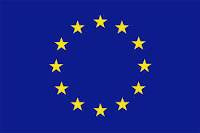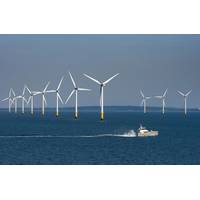Norway to Match EU on Climate Goals, Easing Oil Industry Fears
Norway will match a European Union goal of cutting greenhouse gas emissions at least 40 percent below 1990 levels by 2030 under a government plan announced on Wednesday, easing oil industry fears of tougher unilateral curbs.
Norway's target will be part of a U.N. deal, due to be agreed in December in Paris, to limit rising temperatures blamed by a U.N. panel of climate experts for stoking heat waves, desertification, floods and rising seas.
"We will negotiate with the EU about entering ... the EU system," Prime Minister Erna Solberg told a news conference, adding that the 40 percent goal would stand even if a formal link-up did not work out.
The minority right-wing government is guaranteed backing in parliament for the plan with the support of two smaller opposition parties.
Last year, the European Union set a 40 percent goal for cuts in emissions, mainly from burning fossil fuels, below 1990 levels by 2030.
"My first reaction is 40 percent is an amazingly demanding goal," Eldar Saetre, appointed chief executive of state-controlled oil major Statoil on Wednesday, told Reuters.
But he said he was happy Norway aimed to join a wider EU system rather than set unilateral goals. "It is incredibly important that competition is equal," he said.
"We support the government's ambition to make a joint effort with the European Union," said Pia Martine Gautier Bjerke, spokeswoman for the Norwegian Oil Industry Association.
Norway is already a member of the EU's carbon market, covering industrial emissions, but inclusion in wider EU goals would give it the flexibility to make cuts by buying emissions quotas from other EU nations.
Norway's emissions were 3.7 percent above 1990 levels in 2013, far worse than the EU's performance, reflecting oil and gas output and the difficulty in cutting emissions when almost all Norway's electricity already comes from clean hydro power.
Stig Schjølset, head of carbon analysis at Thomson Reuters Point Carbon, said the EU link would the dim risks of tough unilateral measures, such as obliging more offshore oil platforms to lay cables to use electricity from the mainland.
"Now there is flexibility for Norway to buy emissions rights from other EU countries," he said.
Rasmus Hansson, the lone member of parliament for Norway's Green Party, denounced the plan as "a new way to shield the oil sector". He said Norway should set clear demands for cuts in domestic emissions, rather than buying its way out.
By Alister Doyle, Additional reporting by Joachim Dagenborg












